|
When you need help with your air conditioning – who do you call? You’ll call the HVAC expert – of course! Because you know that you have no business messing around with the air conditioning in your home – at least you don’t if you want some relief from the heat. You know that it’s not your area of expertise – and you’re liable to do more harm than good.
But what do you do when you need help with your business? Be honest. Do you try to fix it yourself? Do you try to handle everything yourself? A bandage here. A quick fix there. And then what happens? Things start to fall apart. Because you can’t do it alone. None of us can. You can’t be an expert in everything related to your business – no matter how hard you try or how much you want to. And as your business grows, you need to tap into your expert network. An expert network is just what it sounds like – a group of professionals who are leading experts in their field. These are the people who can provide you with guidance, advice, research, a sounding board, illumination of your blind spots, and so much more. You may be thinking, “Hmmm…do I have an expert network?” The answer is yes – you do. Because if you are reading this, you’ve got an expert network available to you. You just need to tap into it. On Tuesdays, I’ve been sharing tools with you – that are often amazing people doing fantastic things – and they can be part of your network – if you just reach out to them. There are also those people you’ve met along the way via your own networking. (If it’s been a while since you’ve spoken with them, set up that 15-minute Zoom coffee date and spend some time getting reacquainted.) And, of course, you also have me! I’m here to support you – and if my expertise isn’t what you need at the moment, I’m sure I know someone and can point you in the right direction.
It’s time to tap into that expert network…and share your genius and benefit from the genius of others. Please comment below. I would love to hear from you.
0 Comments
Psssst! Can I share something with you?
You know those “What Businesses Need to Know Right Now” interviews that have been happening for the past year? The ones with all of the great guests sharing their expertise and insight? Well, they’re all going to be available…in a BOOK!! Yes, I’m thrilled to tell you that there will soon be a book that will give you easy access to over 50 interviews from the “What Businesses Need to Know Right Now” series. With topics ranging from Leadership to Communication to Diversity, Equity, Inclusion, and Belongingness – and everything in between – there’s no shortage of great information from some of the best resources in business. And you can PRE-ORDER your copy right NOW! Just click here – and you’ll receive your copy as soon as it becomes available. This has definitely been a passion project of mine, and the feedback I’ve received from these interviews has been incredible – so I can’t tell you how happy I am to bring them to you in the form of a book! Please comment below. I would love to hear from you. What led you to create your business Defy The Status Quo – and why defiant?
It’s never been my style to just get in line. I had been working as a freelance writer. One day I said to myself, “You know what – there’s more to this. There’s more to me, and there’s a brand here.” I brainstormed a lot of different names, but one of the things that really hit me was that I specialize in working with B2B companies. These are usually professional service-type companies. They could be in marketing, consulting, sales, supply chain – those types of companies. And the status quo was that the content was kind of boring for these types of businesses. Yet, what my clients always appreciated about me was that I created content and their strategies that were out of the box. I came up with things that their competitors weren’t doing – and that was the key to getting noticed. Professional sometimes seems to be synonymous with boring. But there’s a lot you can do while still maintaining your professional bearing – and not putting everyone to sleep. And so that was where it came from. We are purposely defying the status quo and doing something different. “Has your business become mired in the status quo? Is it keeping you from differentiating yourself and preventing you from thriving? Now may be the ideal time to take a hard look at your business and make sure you’re doing all you can to set yourself apart from the pack, so that you get the recognition and notice you need and deserve.” How can businesses use content to help them with marketing? You need to determine how you want to be perceived. In my case, I chose “Defy The Status Quo,” – but I had never done a video, for example. I had never created a video and shown my face on LinkedIn, and I was worried. I didn’t want it to be somebody just running their mouth for five minutes and then getting off and nobody ever watching it again. And this little thing made me realize, “Okay, I’m defiant.” I realized that there were going to be people who don’t like this. And that’s the point. In marketing and sales, people talk about, “Oh, let’s qualify leads…” At the same time that you’re qualifying leads, you’re also disqualifying others. You’re saying this lead is good and this lead is bad. Your content should do the same thing. Your content should qualify and disqualify people. For example, if there are people who say, “Oh, I didn’t like this new video style she’s using. I just don’t like it.” Then they’re not the people for me. Because should I happen to take them on as a client, but then they don’t like some of the things I do, I’m going to hear, “Well, we’ve never done it that way before.” And that’s a red flag for me – because that’s the point. That’s why we’re doing it right now. You have to be okay with some people not liking you – but that’s not really how we like to roll as humans. We want people to like us. In marketing and sales – and everything you do – you can’t talk to everyone. Everybody is not your community, and that is what your content should serve to help you with. It can qualify and disqualify the people who will contact you. And that’s a good thing because that means we’re not wasting each other’s time. “Are you using your content to speak to everyone? Or have you been able to hone your message so that it speaks to the clients and customers you want to attract? You could be spending too much time on people who aren’t genuinely interested in your offerings – and it may be time to change your messaging.” Is there a marketing trend this group should keep their eyes on? Empathy is going to be huge, and this requires a break outside of the norm. For example, on LinkedIn, you’re seeing representatives of enterprise-sized businesses showing up in a more genuine manner. Right now, we’re all Zooming, and that means dogs are barking, packages are being delivered, and children are interrupting – and we have to learn how to be empathetic about these things. How does this apply to your marketing? You don’t necessarily have to over edit or over polish the content that you’re producing. You want it to fit your brand perception. This is a great opportunity for us as individual professionals and as company representatives to show humanity in our brand. This is a great opportunity to get some individual faces out there. “Empathy has often been discouraged in business, but now is the perfect time to embrace it. Is your business showing empathy? Are you showing your humanity and establishing that connection with your clients and customers?” 3 Action Steps
Be sure to connect with Ruthie Bowles on LinkedIn or by signing up for her newsletter. Please comment below. I would love to hear from you. Did you have a chance to check out Danielle Berman’s Tackle What’s Next?
he’s helping athletes transition from the world of sports to the world of what’s next – all while using their unique skills, interests, and passions. For athletes making that transition – it’s got to be both exciting and scary. Leaving behind what you know and jumping into something new… I know for me, making the transition from professional organizer with my own successful business to coaching and establishing a new business was both of those things – exciting and scary – and much more. There were many times that I thought, “What the heck am I doing? Why did I leave behind what I know and where I’ve experienced success for the land of the unknown?” Only soon to be followed by, “Man, this is so incredibly exhilarating! There’s something so empowering about taking such a big step!” My emotions during the transition could go from elation to angst with the quick flip of a switch. And, you probably had the same thoughts when you took the leap to start your own business. (After all, birds of a feather…well, you know the adage.) The thing about a transition is that it’s not permanent – it’s just a step along the way. It’s another learning opportunity – just like failure is. So, what did the transition teach me? The list is long, but here are a few of the most important things:
And the learning continues – even though the transition is complete. Of course, all this talk about transitions got me thinking about a quote I read – so I went and looked it up – and here it is: “Light precedes transition. Whether at the end of a tunnel, through a crack in the door or the flash of an idea, it is always there, heralding a new beginning.” – Teresa Tsalaky, author, The Transition Witness Keep that in mind as you go through transitions…and know that you can always reach out to me to talk. I’m happy to support you, be a part of your “tribe” during stressful moments, or be a member of that new community that you’re building – because none of us have to do this alone. Please comment below. I would love to hear from you. Transition is defined as the process or a period of changing from one state or condition to another.
And what’s one thing we all need during times of transition? Support. Because not all transitions are easy. But where do you go for support when you’re an athlete, and you’re transitioning from the world of sports to whatever may be next? That’s where Danielle Berman, a member of the Momentum Activators Program, can help. Danielle is the founder and CEO of Tackle What’s Next – the premier community and support team for athletes transitioning from sport to what’s next. With so much of an athlete’s identity tied to their sport, Danielle aims to disrupt the cycle of identity loss for athletes in life after sports and recreate a sense of team to help them find their purpose. Structure, community, and accountability are what Danielle and Tackle What’s Next bring to athletes as they use their unique skills, interests, and passions to transition – and be successful – after the game. (And isn’t that what we all want?) Of course, we’re not all professional athletes, but what Danielle shares applies to business leaders as well. Be sure to check out Tackle What’s Next and her Playbook Blog – because I’m positive you’ll love what she’s sharing. Please comment below. I would love to hear from you. What do businesses need to know right now about the protests and the impact it is having on business owners?
Dr. Herold is sharing what businesses need to know right now about the protests and the impact it’s having on business owners. As a black, Haitian-American, and owner of a business, he’s the perfect person to engage with in this conversation. “We thought that COVID-19 was going to be the worst of what we had to endure in 2020, and then a video surfaced of a man named George Floyd. And we find ourselves asking how a 911 call for a counterfeit bill led to somebody dying on the streets of Minneapolis at the hands of a police officer.” It was stated that it was standard protocol for the store to call 911 for the counterfeit bill. I think where the injustice and outrage came from is that people wondered where was the standard protocol for the police officers in apprehending and dealing with Mr. Floyd? That’s where the outrage came from. The fact is that he was unable to breathe properly for eight-plus minutes, and you find yourself asking, “How did this happen?” He didn’t look different than anyone else – other than being an African American person. And he died. As a father, I’m thinking, “Man, you know what? This could be me. This could be my son or my daughter.” This is also coming on the heels of Ahmaud Arbery, who was a young man that was shot down in Georgia, and then Breonna Taylor, who was a young lady that was a civil servant and was killed in her own home. And these things have been happening over the past few years. We all remember Trayvon Martin. In Baltimore, there was Freddie Gray. Within the African American community, we find ourselves asking, “When is enough enough? When are we going to change the policies?” Of course, you can really legislate good thinking. If somebody has been raised to think differently about somebody, you can’t legislate that out of them; you can’t get rid of systemic racism. But you can put some policies in place to protect oppressed people. “You can’t take out the systemic racism from people who have learned it from generation to generation, and that’s what they grew up with. But you can do things to protect a class of people who have been consistently and constantly oppressed and done so with public policy and with ignorance.” As a business owner, how do you bring these conversations into your work? And what changes do you think need to be made for businesses to address – or not address – these things? I was telling you earlier that you actually had a really good segment with Bob Graham. He said you have two scenarios. You can say that the business is not going to take any stance, so that you don’t alienate any clientele or staff members that might be working with you. And the alternative is to at least create a safe space so that at least you address it, and you address the elephant in the room and create a safe space for your employees and staff members so they can talk about it. This allows your employees to feel free to openly discuss and talk about the current situation without judgment and without malice. Our company, MSI, we have at least done the latter. We have at least addressed it in an office meeting. Whenever there is any unrest or anything socially going on, we’ll bring it up. We do know that it does cause some tension in the office environment. It does cause stress, and it does cause people to react differently in the moment. Sometimes in our office meetings, we just want to clear the air, and we say, “Hey, look, we know this is going on. If anybody wants to talk about it, or if there’s anything that we can do to help anybody, whether it’s on the mental health side of it, or whether it’s anything that we can do to talk about it and address it – let us know.” I think that is something that shows the employees that they’re valuable to me not just as an employee – but as a human being who has feelings. “It’s not just your employees that are dealing with these things; it’s your clientele also. They will see that you’re willing to open up these conversations, to hear the voices that, perhaps, have not been heard, and to be willing to accept that there are feelings that come along with this, and it’s not okay just to pretend that it doesn’t exist.” Somebody said, “You know it’s not like there is that much more racism going on right now. It’s just being recorded more.” And I think that with Facebook and people sharing their feelings and this and that, things are just coming more to life. You know, the chickens are coming home to roost. If we’re all going to live in this world together, then we’re going to have to create these spaces to deal with them. I’m remembering back to the civil rights movement, where you really didn’t see a lot of white America taking part in the marches. It was mostly the black people in Birmingham and the bus boycott. But it was when Bloody Sunday happened, when now Congressman John Lewis, along with countless others, were marching across the bridge peacefully, and they were beaten and attacked by police. It was recorded for the world to see. And it was around that time that King also wrote a letter from the Birmingham jail, which I encourage everybody to read, because Dr. Martin Luther King, was writing to the white clergyman that were telling him that now is really not the time to protest and now is really not the time to march. They said he was becoming an agitator and that he was trying to disrupt things. The white clergy said that we have a peaceful society, a law-and-order society, and asked Dr. King why he was messing things up? In his letter, which again, I encourage everybody to read because it’s a very long letter, but it’s very impactful, he asks, “When is the right time to protest?” So often, the Negroes have heard, “Wait.” And wait has been synonymous with never when it comes to when is a good time to protest. With the NFL not too long ago, there was a peaceful protest by Colin Kaepernick, which drew different sides on Facebook, and whether you agreed with what he did, he was still doing it peacefully. Now you see certain football players calling out certain teams because they’re like, “Hey, wait a minute. Now you’re with us and talking about the blackout because the streets are burning and all of this stuff.” Well, when somebody was trying to do it peacefully, they said it was about the flag. They said it was about all these other things when the very person that protested said it was about police brutality. There is no one right way to protest that’s going to make everybody comfortable. I definitely do not agree with the violence and the looting. I do think that there are other outside agitators that are trying to corrupt the message that people are trying to do with their peaceful protests. But we have to look beyond that we and we have to call that out as well. I do want to take my time to say that my best friend is a police officer. He’s in the first precinct in New York City, which is going crazy right now as well. I have countless patients that are police officers, and to peacefully protest does not mean that you’re against police. To peacefully protest and to demand justice for not just George Floyd, but to say, “Let’s change the policies so that those that are crossing the line are held accountable.” is not being against the police. Let’s also celebrate the police because they have a heck of a hard time trying to bear the burdens of society. I feel like too many times when there’s something wrong with society; we want the police to fix it. But it’s not a police officer’s job to fix everything wrong with education. It’s not a police officer’s job to fix everything wrong in society. When things blow up like this, they’re looked at as the antagonist. And I do want to take this time to say, No, it’s not all police officers. The majority of people in law enforcement are doing the right thing, and they are walking with the protesters, and they are doing what they have to do to make sure that the communities in which they serve know that they have their back. But what do we do when things go too far and certain people cross the line? How do we protect not just African Americans but all citizens, and I think that’s where the conversation is going. That’s why the world is waking up, and this is really a fight for humanity because no one person should die on the streets while being apprehended. I’ll end with a story. I told you I was Haitian American, and my parents came here because there was a lot of political persecution in Haiti. One time, I was maybe 11,12 years old, I came home, and my grandmother, who was very strong, probably one of the strongest women that I know, was crying profusely. I said, “Man, what’s wrong with her? Why is she crying?” And she was saying, “Oh, they killed Claudie. They killed Claudie.” My mother had a cousin named Claudie, and because the government was unchecked, it got so corrupt that the dictator and the political class had their own secret police – kind of like a Gestapo. Those individuals that were corrupt police officers, they basically beat one of my cousins because he had a radio show that was talking about the government and talking about mobilizing; he wasn’t really talking bad, but about he was just trying to mobilize and trying to get laws passed, and they killed him. They brutally murdered him, And at that time, when I said, “Wow! Well, I’m glad that’s only happening in Haiti, and I’m glad that’s not happening in America.” And now, as I’ve grown up, and I see stories unfolding, it’s happening in America. We’re better than this. We are the city on a hill. We are the beacon of light that all other countries want to come to. But if we want to live up to our values that every man is created equal and that every man can pursue life, liberty, and happiness, then we have to be able to have these conversations. And we have to be able to not only have these conversations but to demand justice. Because a lot of times the freedom is not given, it usually has to be demanded by the oppressor. That’s where we are right now. And I think we can do it peacefully. But we can also engage the community so that we can increase voter turnout. And we can engage communities so that we start reducing all the other issues that we have in black America – such as housing prices, drugs in the community, and education. But right now, the light is shining on the criminal justice system. Some things I would encourage everybody to read that letter from the Birmingham Jail. There’s a great Netflix movie that talks about the criminal justice system called “13th” on Netflix, and if you haven’t watched that, I would definitely watch that. There are groups in Baltimore that are trying to not just work together with the police, but also trying to reduce the violence that’s going on within the community. There’s one that’s called “We Are Us,” and it’s a bunch of men from all different faiths and backgrounds, and they walk the streets of Baltimore, and they’re talking to the young kids and trying to show them that there’s a better way. There are plenty of things going on. It’s may not be on CNN, Fox News, and MSNBC, but they’re happening. That’s what I think your community, meaning basically white America, should see – and not just look at what’s on the news, but really talk to people, open up the conversation and talk to people that are doing things in a positive way to improve the community, then we’re going to go a whole lot further than just seeing riots on TV. 3 Action Steps
Connect with Dr. Herold at on LinkedIn. Please comment below. I would love to hear from you. I was always at the top of my class.
Getting good grades in school was expected because my parents knew that I was capable. I remember hearing that other kids received payments for “A’s,” and I brought this idea to my parents, but they weren’t interested. The grade mattered less than doing your best. That was the expectation. Sitting in the Small Business Development Center, across from my first business coach, he asked what my close rate was. I wasn’t as business savvy then. I had to ask for the explanation, “How many people decide to work with you once they learn about your service?” “Oh, that’s easy, almost all of them,” I responded. I could see the look of skepticism. And asked, “That’s not unusual, right?” Wrong. It was very unusual. The discussion continued on goals and my success at reaching them. I stated matter-of-factly, “I achieve ALL of my goals. After all, I teach people how to set goals. I should be able to do it myself, right?” It wasn’t long after that that I began reaching beyond the familiar. I started moving into areas that stretched my imagination and success rate. My close rate dropped. And so did my goal achievement. What I didn’t know then – or didn’t have the term for – was that I was a “High Achiever.” One night when the early Sappari Solutions, LLC team was enjoying dinner together, we went around the table and shared one word that described the person next to us. My good friend’s husband said, “Achiever.” That was me! I accepted it and embraced it. I felt “seen.” And then, the night that I was admitted to the hospital at 31 years old for chest pains, he adjusted my title to “Overachiever.” And I’m not the only one. There are others out there like me. Maybe you are an overachiever, too. We have a tendency to surround ourselves with people who think like us. But is being an overachiever all it’s cracked up to be? VeryWellMind shared this about overachievers: “Overachievers tend to believe that the only thing that matters is reaching the outcome. They judge themselves by this standard and they also believe that others judge them in the same way. Failure is not just part of the process for an overachiever—it is how they measure their worthiness. Poor outcomes can be devastating, so an overachiever will go to any ends to avoid such failings. When they do reach a goal, an overachiever is more likely to experience feelings of relief that they were able to avoid failing. Rather than feeling pride or joy in their accomplishment, they are simply relieved that they have not failed.” And throughout high school and college, we experienced very few – if any – failures. We knew the steps we needed to take to achieve good grades and get that diploma – often with honors. Then, as we stepped into our professional careers – often in the corporate world – we knew the steps we needed to advance and move up the ladder. And we did it. So, of course, when we made the transition to becoming a business owner, we thought that we were unstoppable. We’d done it before. Followed the steps. Success occurred. Failure was not an option. Yet maybe you experienced missteps along the way that were costly. Perhaps success took longer than you thought it would. Or you experienced failure. Because when you are the leader/owner of a business, there are no set rules or books that are going to show you the one and only route to achieve success. The path meanders. There will be roadblocks. Some routes will take longer than others. You’ll reach dead ends. Failure will occur. And while your brain is saying, “Failure is not an option,” – you should be saying, “Failure doesn’t define me.” Because truly, failure is a learning opportunity – if you just take the time to look at it as such. Please comment below. I would love to hear from you. Do you have five minutes? Well, 5 minutes 12 seconds – to be exact!
Sure, you could answer a couple of emails or return a few phone calls, or you could get started with something that could transform your business. Because with five minutes, you can get started with the Productive Profits System. That’s right – in that short amount of time, you can watch Video #1: What’s Holding You Back From Your Next 6-Figure Income Stream. And I’ve got to ask: Do you know what’s holding you back? Video #1 shares several scenarios that answer that question – and one of them (or a combination of them) most likely applies to you! (Yes, I could tell you what those scenarios are – but I encourage you to check out Video #1! Remember – it only takes about 5 minutes! The Productive Profits system is all about leveraging your expertise, simplifying your business, and maximizing your revenue. It’s the ultimate system to help you make “Work smarter, not harder” a reality. Please comment below. I would love to hear from you. “You’ve got to spend money to make money.”
We’ve all heard this phrase. In fact, it’s thought that this phrase comes from the Roman playwright Titus Maccius Plautus, a poet and philosopher who lived from 254 BC to 184 BC. (There’s some trivia for you that will razzle-dazzle your friends!) But is it true? How do you balance cutting expenses with the customer experience? After all, Nathan Willard on “What Businesses Need to Know Right Now” shared that we’re now doing business in the time of the experience economy – a time where it’s not about the product or the service you provide – it’s about the experience you provide. (If you missed this conversation about the experience economy – you’ve got to check it out!) Knowing that we’re doing business in the time of the experience economy is especially important because when we focus on the customer experience, we cut out the noise. Cutting that noise out means our focus is where it should be – on our customers. But, of course, we need to keep an eye on our financials. So, what’s a business to do? Well, what if you could do both. Improving the customer experience often hinges on the things you take for granted or undervalue – but that cost very little. They’re things like:
You probably read that list and said, “I do those things!” – and if you don’t do them, you may have thought, “Those things cost little to nothing to implement.” And they’re all part of delivering an exceptional customer experience. But let’s flip the coin and talk about cutting costs. MIT Sloan Management Review shared “To Cut Costs, Know Your Customer” – and it’s spot on! They said your focus should be on three things:
And there are lots of ways to go about these things. It’s not a one-size-fits-all approach to doing business. You might:
So, yes…cutting costs can improve the customer experience. They’re not mutually exclusive. I know that when I set my goals for 2021, so much of this was on my mind – and if it’s on yours, reach out to me. We can talk through your plans to make it ALL happen in 2021! Please comment below. I would love to hear from you. As a business owner, what are some of the things you saw as you went to apply for various grants and funding and loan options?
The main thing that I found out from people that didn’t have their papers is that they needed their EIN number (tax ID) documented – which was something that the PPP (Paycheck Protection Program) required – and trying to call the IRS and get through wasn’t happening. Also, you had to have a business bank account. I heard from several people who always kept their personal accounts and never transferred over to a business account. So, that stopped them from moving ahead. You also needed some Articles of Organization. Obviously, your state paperwork had to be in order, and you had to have different business licenses. A lot of people didn’t have that paperwork together. “Even as an established business, you want to make sure you have everything in order – so that if an emergency arises, you’re not scrambling to get things together.” As a company that’s owned by two people of color, what things are affecting your business? What do you think businesses need to know from that perspective? Everyone needs to be empathetic right now and consider what you’re posting. A lot of people have automatic posts going out. Sometimes you have to reconsider the climate in which you’re posting something. Something that could have been funny, may not be now. If you’re going to stand in solidarity with either group, and again, I’m not telling you what side to choose, but people need to take a stance and be willing to own that space. If you are a person for Black Lives Matter, or if you are on the other side of All Lives Matter, then make that known – this way, people can spend their money accordingly. I also think it’s important for us to realize that we have to diversify our companies across the board. Who are we? Who are we serving? Who’s on our boards? Who’s the head of the company? What do they stand for? It’s also important to understand this when it comes to social media. Not everyone should be talking for the company. Just because you’re the owner of the company, you might not be the best voice to get your point across because sometimes people will say things in the moment. For example, Drew Brees, who then saw how his words hurt his family and teammates. He had to come back and say something new. So, sometimes maybe running things by the internal office, your PR and media team to say, “We want to make this statement, but it doesn’t read the way we want to…” and I always go back to: A joke written down doesn’t always get a laugh when you say it out loud. “The World Economic Forum says that “empathy is a sustainability tool that can help us create a far better environment in which to live and work. It is both something we can learn how to use and a resource that we can use to learn.” What can companies be doing right now to assist college students? You have the best opportunity right now as a business owner. Now you have thousands of high school students who are heading into college and regular current college students – at home. And you can do virtual internships for them. So, maybe someone comes on to your PR and marketing team. You can allow them to come on via Slack and Google Hangouts and all of these other meetup opportunities and work with your PR team to get experience. You can have them join you and work on your website and your web design. It’s a great opportunity for established business owners. You want to make sure to be fair – that you’re not really too much of a startup where they’re not going to get the information and the opportunity they would normally get. Because remember – it’s already skewed because they’re not in the office with you. Someone’s not sitting side by side with Nettie learning the ins and outs of your business. You want them to get the most exposure that they can, and make sure that you have someone that can handle that new task of managing. We have a great opportunity right now to bring on students and give them great exposure. We can help them through this process because their education just stopped. “If you’re an established business, have you thought about the opportunity to offer someone an internship with you? What skills can you teach and share? What might an intern bring to you?” 3 Action Steps
Be sure to connect with Keri Herndon-Brown on her website or LinkedIn. Please comment below. I would love to hear from you. |
AuthorBeing an entrepreneur and business owner is hard! Once you have your business up and running it's not uncommon to hit a few snags: scalability, staff retention, launching growth projects, getting enough sleep! Archives
November 2021
Categories
All
|



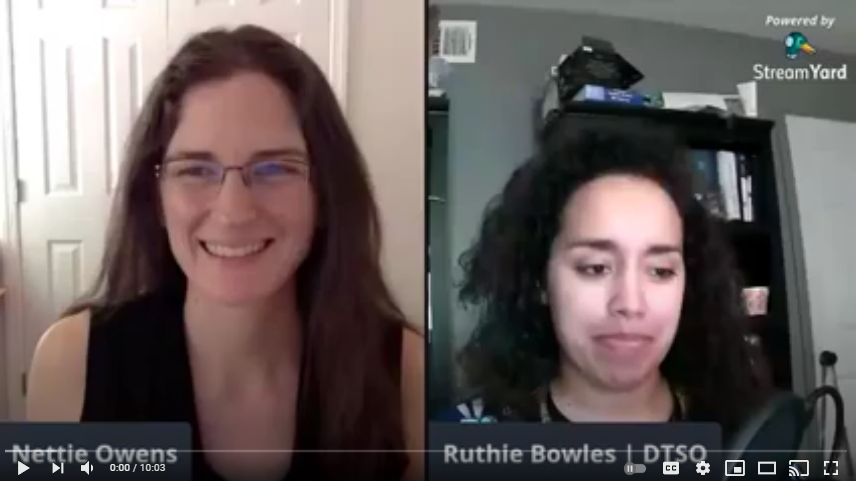

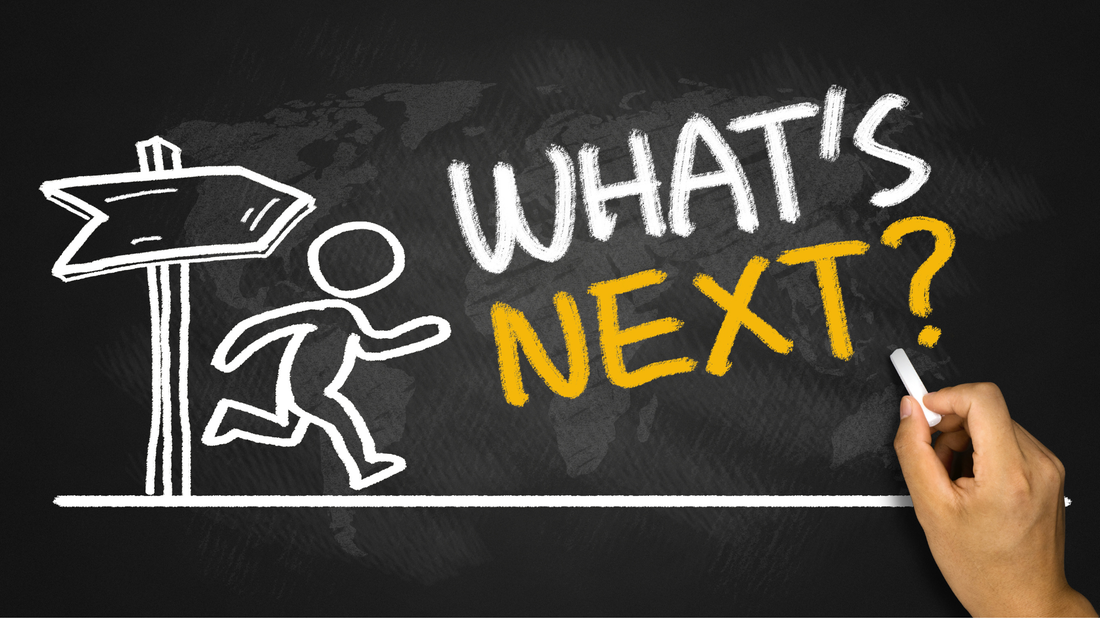
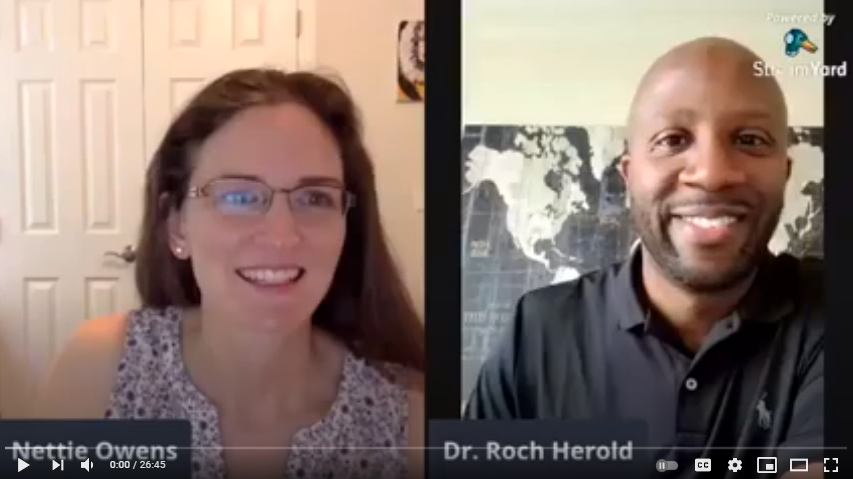
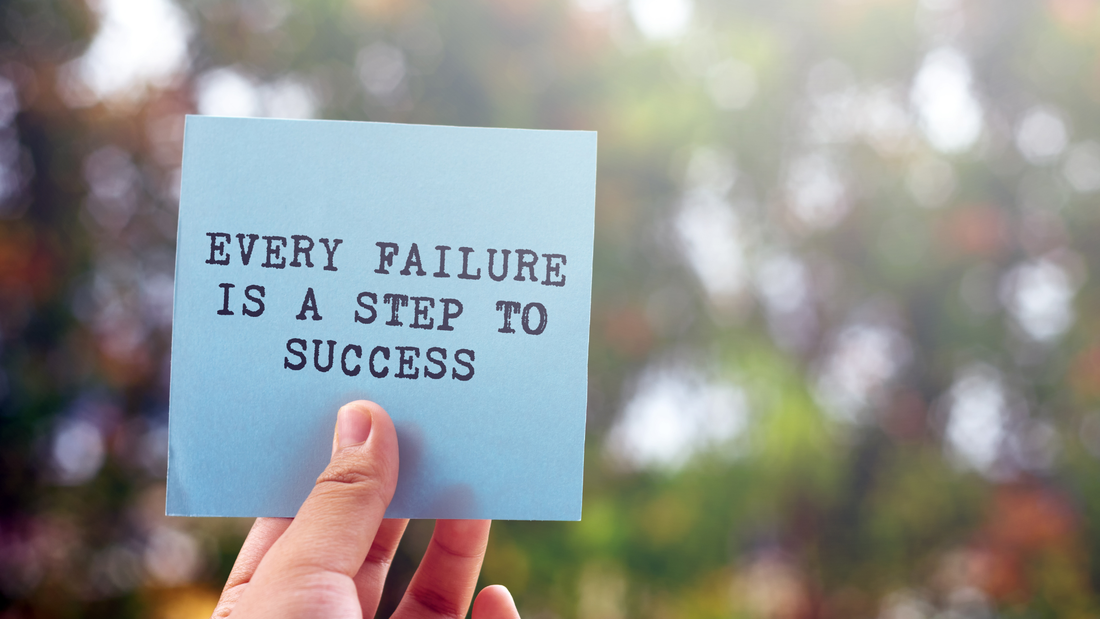
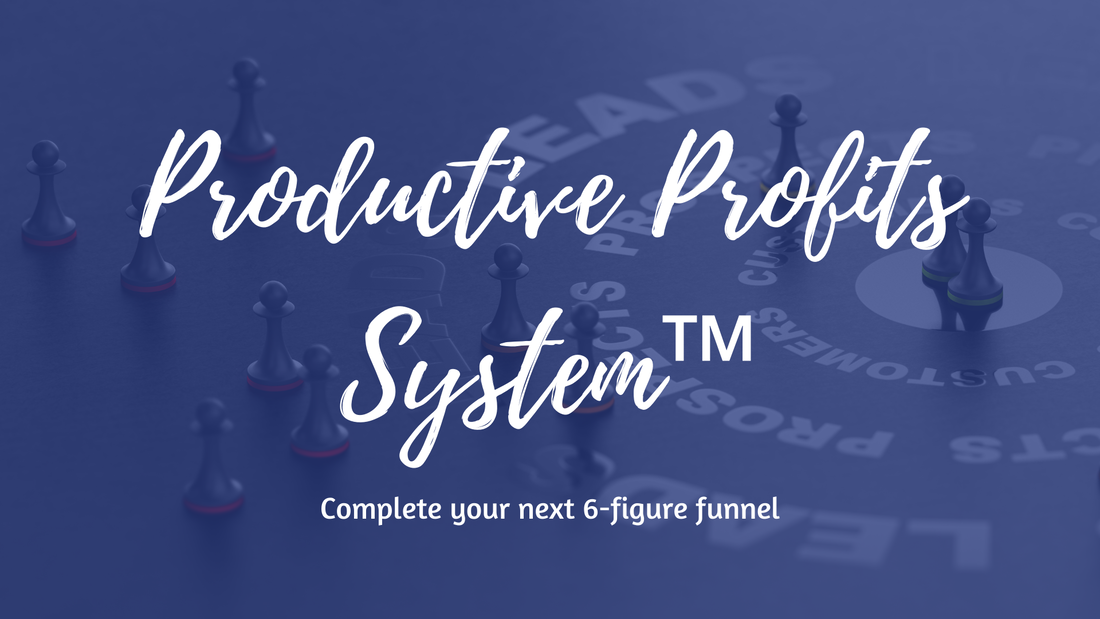
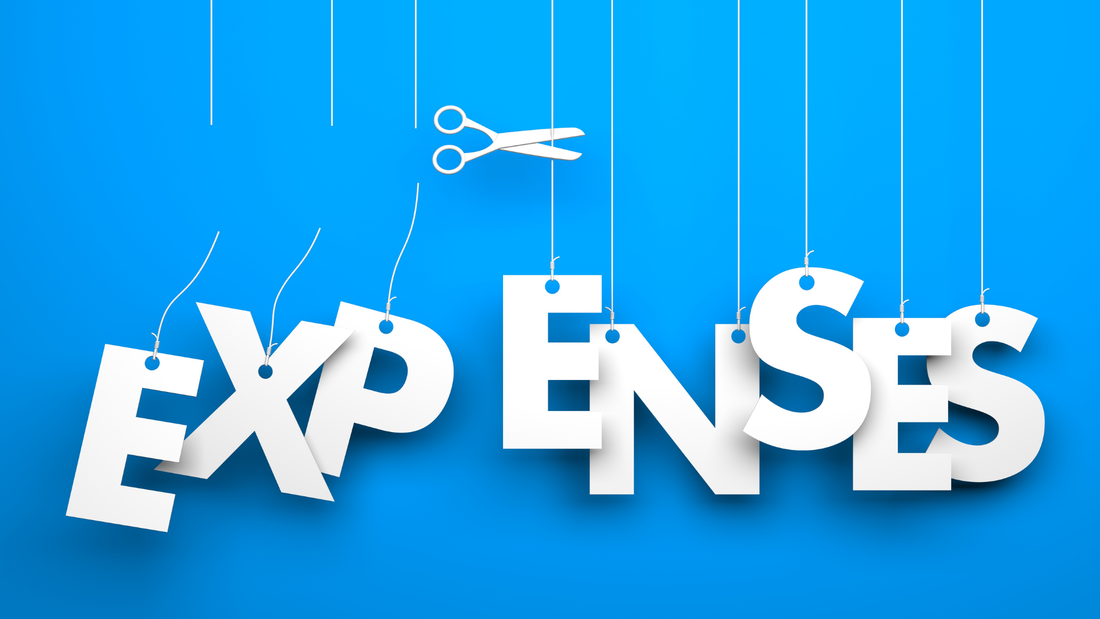
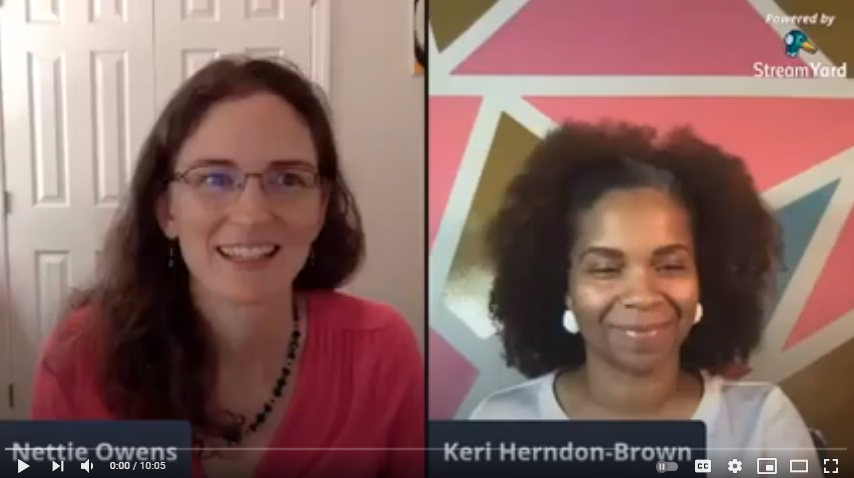
 RSS Feed
RSS Feed